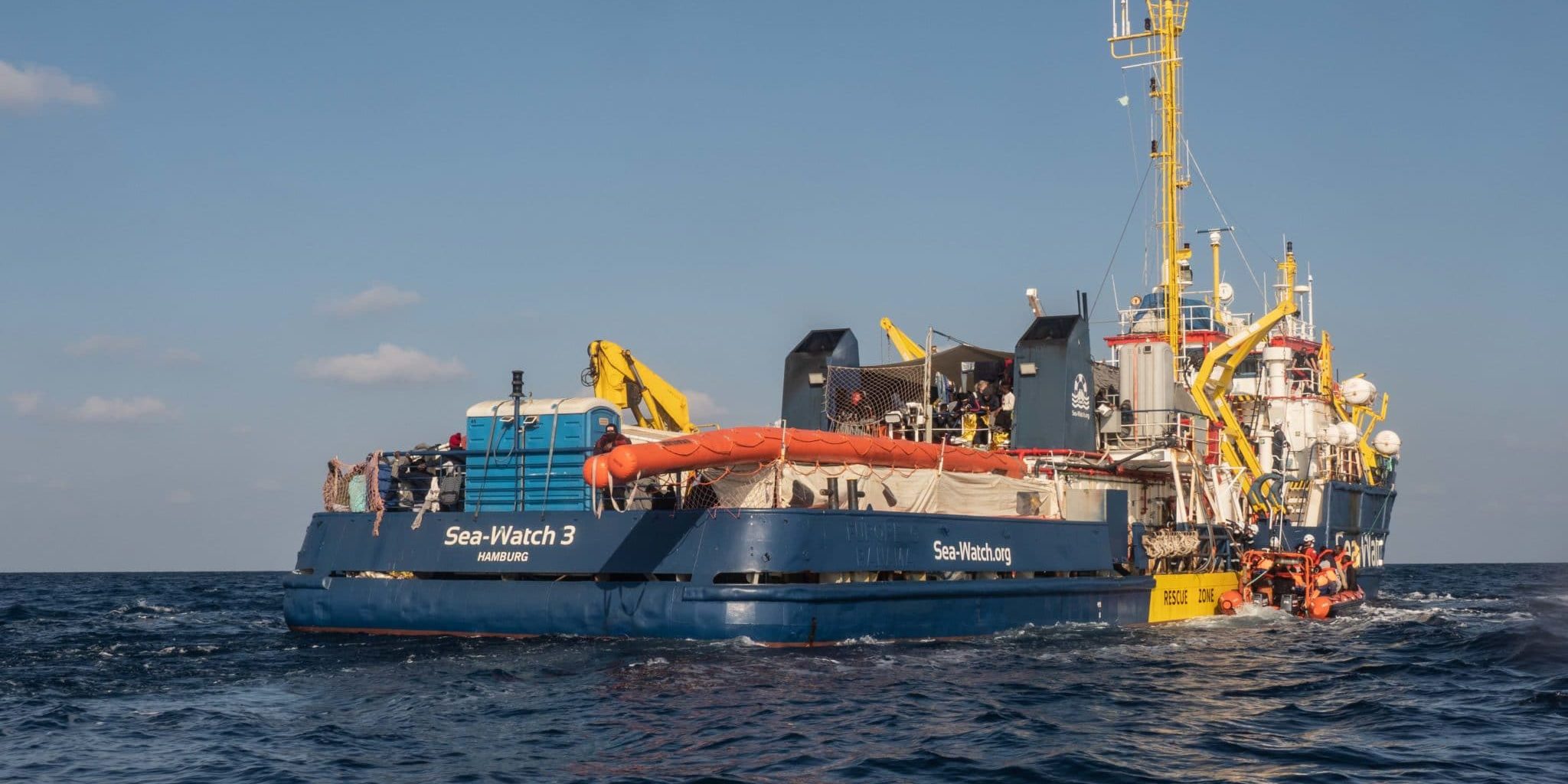On February 19, the rescue ship Sea-Watch 3 left for its first mission after an enforced break of more than seven months. In five different rescue operations, it was able to rescue 363 people from distress. In a sixth operation, the crew could stabilize another boat carrying about 90 people until the Italian Coast Guard arrived. The ship and those rescued have so far been denied a safe port in Europe. Due to the arbitrary detention of civil rescue organizations by European states, the Sea-Watch 3 is currently the only active rescue ship in the central Mediterranean.
Following its detention by the Italian authorities in July 2020 and more than seven months of an enforced break, the sea rescue ship Sea-Watch 3 was able to leave the port of Burriana (Spain) on February 19. Previously, both German and Spanish authorities had reconfirmed the ship’s safety and registration.
After rescuing 45 people in the early hours of February 26, Sea-Watch 3 sighted another distress case on the morning of February 27. The dinghy carrying 102 people was already deflating, but the people could be brought on board in time.
On Sunday yesterday, the crew of the Sea-Watch 3 was able to take another 216 people on board in three following rescue operations. One of the distress cases was discovered by Sea-Watch’s reconnaissance aircraft Moonbird. According to the International Organization for Migration (IOM), for at least 15 people who drowned on Sunday in a shipwreck off the Libyan coast, any help came too late.
During the night of today, Monday, the crew discovered another distress at sea. With 363 people already on board the Sea-Watch 3, the crew stabilized the wooden boat and waited for the responsible coast guard. For hours, about 90 people had to hold out on life rafts until the Italian Coast Guard arrived, which then took the people to Lampedusa.
The 363 people on board the Sea-Watch 3 are now receiving medical care. Numerous rescued people showed fuel burns, dehydration symptoms, hypothermia and are struggling with seasickness. In addition, there are the physical and psychological consequences of their previous detention in Libyan camps.
Requests to Italy and Malta to allocate a safe port for the 363 people on board have so far been unanswered.
“Yet again, Europe turns a blind eye while people are drowning and civil sea rescue organizations do their best to put an end to the dying at sea. While this year alone, more than 170 people have already lost their lives in the Mediterranean, Europe is doing everything it can to prevent us from rescuing them. Every person has the right to be rescued, no matter which passport they carry. The people on board have the right to a safe port, and we need it now!”, Hugo Grenier, Head of Mission on the Sea-Watch 3.
“The German government cannot leave countries in the Mediterranean alone. The Ministry of the Interior has to finally drop its attitude of blocking the reception of rescued people and needs to ensure their admission. How long will you ignore the demands of over 230 German cities and municipalities willing to welcome people, Mr. Seehofer?” Marie Naaß, Head of Advocacy at Sea-Watch.
While sea rescue ships, including the Sea-Watch 4, continue to be blocked in Italy for political reasons including alleged safety deficiencies or are prevented from operating with conditions that cannot be fulfilled, Europe’s isolation and blockade policy continues to be deadly: according to the IOM, in 2021 alone, more than 170 people have died trying to cross the central Mediterranean. In violation of international law, more than 3,500 others have been forced back to Libya by the EU-funded so-called Libyan Coast Guard.











